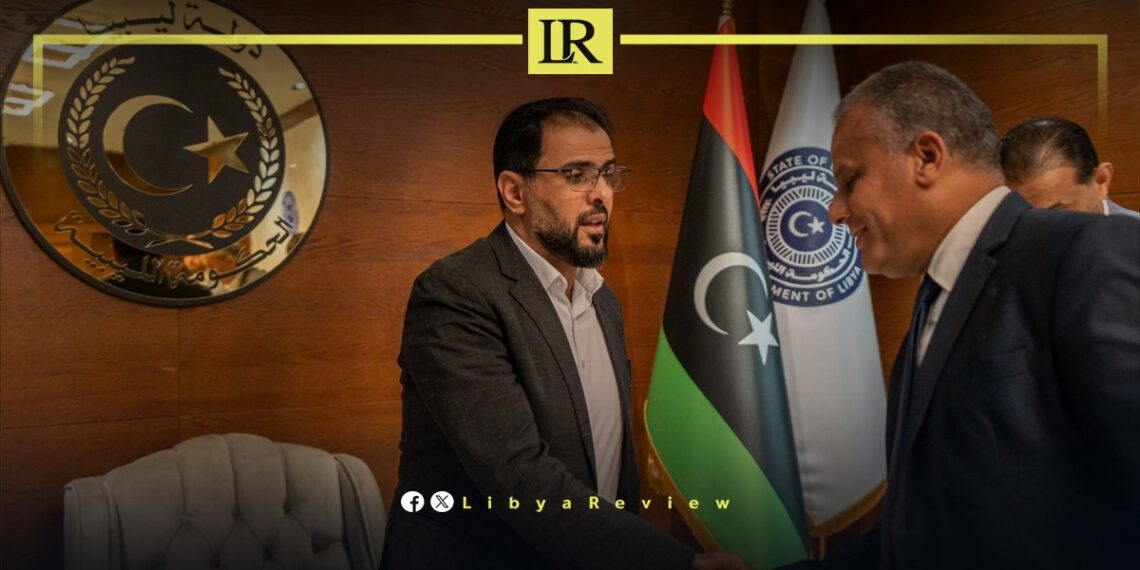Libyan Prime Minister of the Parliament-designate government, Osama Hammad, met with members of the Judicial Receivership Committee overseeing the funds, assets, and revenues of the Libyan Investment Authority (LIA).
Hammad was briefed on the committee’s latest developments, with the appointed members from the Ajdabiya Primary Court confirming their commencement of duties in line with Decree No. 9 of 2024 issued by the court.
The meeting took place at the Hammad’s office in Benghazi, attended by Mustafa Al-Mismari, the Secretary-General of the Cabinet’s Office, and Ahmed Al-Murtadi, the Director of the Ministry of Planning and Finance’s Office.
The government stated that the meeting is part of the measures taken by the Libyan government to safeguard public funds from corruption, abuse, and deliberate misappropriation by the outgoing Prime Minister, Abdelhamid Dbaiba.
The statement alleges that Dbaiba unlawfully assumed the position of Chairman of the Authority’s Trusteeship in ways constituting criminal offenses punishable by law. It further claims that Dbaiba caused the state and the people to lose their rights by dealing illegally with the funds and assets of the LIA.
Last week, the Ajdabiya Primary Court appointed a judicial receivership committee over the funds, assets, and revenues of the Libyan Investment Authority (LIA) based on a request from the Parliament-designate government.
The decision includes the balances of the LIA at the Central Bank of Libya (CBL), the Libyan Foreign Bank, all Libyan banks abroad, and its affiliated entities.
The receivership committee is composed of the accountant and legal auditor Khaled Mustafa Abdul Salam Abu Aljoud and the legal expert Salem Ali Miftah Al-Kadiki.
Last month, the eastern-based government aligned with the Central Bank governor’s call to halt the outgoing government from squandering public funds and excessively spending without merit.
In a statement, the government led by Osama Hammad renewed its accusations against its rival administration, headed by PM Abdelhamid Dbaiba, for deteriorating citizens’ living conditions and inflicting serious damage on the national economy. It also noted the rise in foreign currency prices against the local currency, both officially and in parallel markets.
Hammad’s government stated that the expenses of the Government of National Unity (GNU) exceeded 420 billion dinars in just two years, as mentioned in the speech of Al-Siddiq Al-Kabir, the CBL governor. It criticised the spending process, claiming it lacked benefit for Libya and its people, accusing it of unlawfully seizing sovereign revenues from various sectors.


